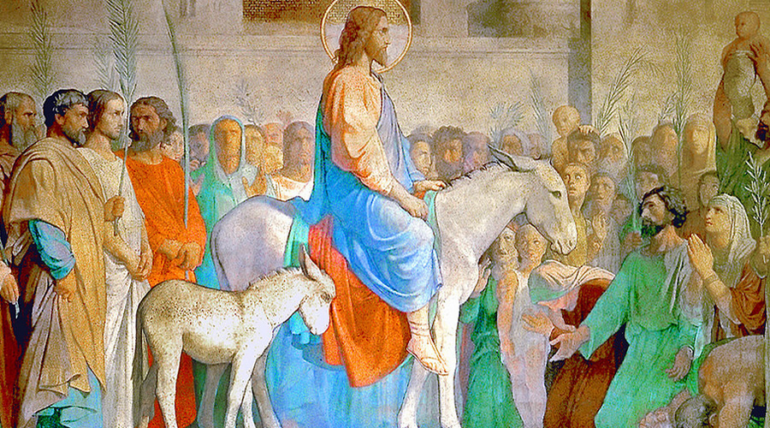6th SUNDAY OF EASTER A John 14: 15-21
“Knowing God is more important than knowing about God,” the 20th century theologian Karl Rahner once said. Knowing a person is essentially different from knowing about a person. To know another suggests an intimacy that goes beyond factual detail. It suggests something much deeper, something more dependable, something of real substance. We will celebrate very soon the feast of Pentecost. It’s a feast we build up to each year in hopes that the love of God be poured anew into our hearts by the Holy Spirit (Rom 5:5 ff), and that we be touched by something of the reality of God. St John of the Cross insists that the basics, self-knowledge and our relationships with others, need to be in place before entering deeper forms of prayer and awareness of God.
To know God we need to know ourselves first. A glance in the mirror might offer knowledge about ourselves while the true self remains hidden. It takes much more effort to get to the thinking and reflecting me, to the joyful, fearful, achieving, failing and honest me. Facing up to who I am is a task that demands courage and conviction. But it’s the first step we need to take. The next step is to take a look at those around us: how do we treat others and what do we expect from them in return? In whose interests do we act, theirs or our own? The genuine seeker takes the chance, leaving the security of appearances in order to explore the real.
Make your home in me, as I make mine in you – John 15: 4ff. Jesus was loved by his Father in a way analogous to how a child is loved by its parents. The child grows in an atmosphere of love, trust, certainty and expectation that are the parameters of the child’s real world. As children we didn’t have to earn our parents’ love; it was the unqualified ‘given’ of their love, and it nurtured us. Christ did not have to earn his Father’s love. He was loved simply for being himself. We are loved by God simply for being ourselves. Contemplative forms of prayer move us from an objective belief in God’s presence everywhere to a vivid awareness of and awakening to Christ making his home within us.
“Salvation is an encounter with Jesus, who loves and forgives us by sending the Spirit to comfort and defend us. Salvation is not the reward of our good works or the result of our studies and research. For each of us, salvation can take place only through the lens of an encounter with the One who calls to us. For this reason the mystery of predilection can only begin with a rush of joy and gratitude. The joy of the gospel is like the joy of the poor women who, on Easter morning went to the tomb of Christ, found it empty, then encountered the Risen Jesus and raced home to tell the others.” Pope Francis, A Gift of Joy and Hope, 149.
Fr. QQ – 05/10/2023
Is it possible that despite our discoveries and advances, despite our culture, religion and science, we have remained on the surface of life?
Rainer Maria Rilke



